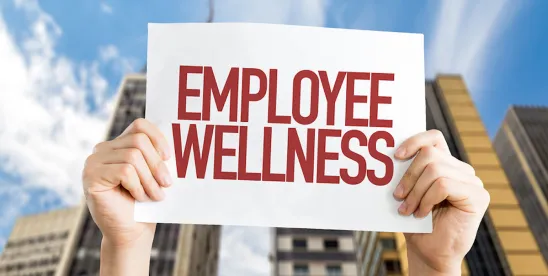The One Big Beautiful Bill (OBBB) introduces updates for employers offering benefit plans, with changes that affect health savings account (HSA) eligibility, dependent care assistance limits, telehealth services, and more. Notably, the bill expands HSA access to those enrolled in bronze and catastrophic plans and also makes permanent the safe harbor that allows plans to be treated as high-deductible health plans despite not having a deductible for telehealth services.
The OBBB, which passed on July 3 and is expected to be signed by President Donald Trump by July 4, also reshapes executive compensation rules for public companies, increases tax credits for employer-provided childcare—especially for small businesses—and makes the employer student loan repayment benefit permanent. Employers should review these changes now to prepare for effective dates beginning in 2025.
The OBBB makes the following changes which may be of interest to employers regarding their benefit plans:
Health and Welfare Benefits
- Expanded Health Savings Accounts (“HSAs”) Eligibility: Historically, HSA eligibility had been limited to only those individuals enrolled in a high deductible health plan (“HDHP”), and the maximum out of pocket costs for some bronze and all catastrophic plans exceeded the IRS limits to be considered a HDHP. The OBBB now allows all bronze and catastrophic plans to be considered eligible plans for HSAs, thereby expanding HSA eligibility. This is effective for months beginning after December 31, 2025.
- Direct Primary Care Fees: Historically, direct primary care arrangement fees had been considered a separate and additional form of health insurance, making these arrangements incompatible with HSAs. However, the OBBB changes this and allows individuals enrolled in HDHPs to also enroll in direct primary care arrangements, while maintaining their HSAs, and furthermore allows HSA funds to be used to pay for these direct primary care arrangement fees. HSA distributions for direct primary care arrangements are limited to $150/month for individuals or $300/month for family (adjusted for inflation). This is effective for months after December 31, 2025.
- Dependent Care Assistance Program: The OBBB increases the maximum amount that can be deferred on a pretax basis in a Dependent Care Assistance Program to $7,500, or $3,750 for a married individual filing separately (previously the maximum contribution was $5,000 or $2,500 for a married individual filing separately). This is effective for taxable years beginning after December 31, 2025.
- Telehealth Services. The OBBB makes permanent the safe harbor that allows plans to be treated as HDHPs despite not having a deductible for telehealth services. This is effective for plan years beginning after December 31, 2024.
There were several health and welfare-related provisions that were initially introduced in the House version of the OBBB but were not included in the final version of the statute. For example, the final OBBB does not include CHOICE Arrangements (an update to ICHRAs), nor other changes to HSA rules, such as allowing individuals on Medicare Part A on the basis of age to contribute to an HSA (if enrolled in a HDHP), allowing spouses to both make catch-up contributions to the same HSA, or increasing the HSA for certain income levels.
Executive Compensation
- Currently, public corporations cannot take a tax deduction for remuneration paid to certain executives that exceeds $1,000,000 per year. The OBBB adds a controlled group aggregation rule for purposes of identifying the five highest-paid employees for a particular year and for calculating the amount of remuneration paid to specified covered employees. Compensation paid by all entities within a controlled group is counted for purposes of the $1,000,000 limit, and where that limit is exceeded on an aggregate basis, the OBBB allocates the permissible deduction among the controlled group members that paid remuneration to the specified covered employee. This is effective for taxable years beginning after December 31, 2025.
Fringe Benefits
- Employer Provided Child Care. The OBBB increases the maximum employer credit for employer-provided childcare. Historically, businesses could receive a credit on 25% of qualified childcare expenses provided to employees (up to $150,000). The OBBB increases the maximum credit to 40% of qualified childcare expenses (up to $500,000). Additionally, the OBBB includes a new provision for small businesses, allowing a credit of 50% of qualified childcare expenses (up to $600,000). The OBBB also allows small businesses to pool resources to provide childcare and allows businesses to utilize the services of a third-party intermediary, while retaining eligibility for the tax credit. This is effective for amounts paid or incurred after December 31, 2025.
- Student Loans. Currently, an employer can make non-taxable contributions to an employee’s student loan repayments through educational assistance programs, and the first $5,250 of employer-provided education assistance is excluded from an employee’s gross income. This was set to expire at the end of 2025. However, the OBBB makes this permanent, and also indexes for inflation the current exclusion limit of $5,250 for such educational assistance programs. This is effective for payments made after December 31, 2025.
- Bicycle Commuting Reimbursement. The OBBB permanently eliminates the qualified bicycle commuting reimbursement. A $20 per month tax-exempt reimbursement from employers to employees for qualified bicycle commuting reimbursement was set to return in 2026. The OBBB permanently eliminates this provision but also adds another year of inflation adjustment to other qualified transportation fringe benefits other than the qualified bicycle commuting reimbursement. This is effective for taxable years beginning after December 31, 2025.
- Moving Expenses. The OBBB permanently removes the exclusion for qualified moving expenses reimbursement and deductions related to moving expenses, except for active-duty members of the Armed Forces and members of the Intelligence Community. This exclusion and deduction was previously set to return in 2026. This provision is effective for taxable years beginning after December 31, 2025.
- Trump Accounts: The OBBB establishes “Trump Accounts,” which are designed to be IRA-type savings accounts for children. Trump Accounts can receive contributions of up to $5,000 annually (indexed for inflation) from parents, relatives, and taxable entities. Eligible children born after December 31, 2024, and before January 1, 2029, may be eligible to have $1,000 contributed into their Trump Account from the U.S. government. Contributions must end when the child reaches age 18, and distributions may not begin until the child reaches age 18. As a fringe benefit, the OBBB also allows employers to opt to contribute up to $2,500 annually (indexed for inflation) to Trump Accounts of employees or employees’ dependents. To offer this benefit, employers must adopt a plan document and comply with similar nondiscrimination requirements that apply to dependent care assistance programs.








 />i
/>i
